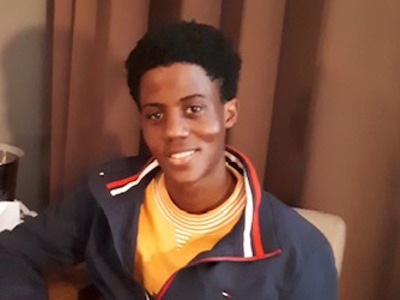
Sickle cell disease patient died after complication during biopsy, inquest hears
Kingsley Imafidon died aged 33 from an intra-abdominal bleed after undergoing a liver biopsy at Homerton University Hospital, the same hospital where he worked, an inquest into his death was told.
Posted on 06 November 2024
Recording a narrative conclusion, HM Assistant Coroner Laura Bradford said part of the device used during the biopsy deployed outside of Kingsley’s liver, leading to bleeding into the peritoneal cavity.
According to a Serious Untoward Incident (SUI) report conducted by the trust, the doctor who performed the procedure was new to the hospital, and not familiar with the biopsy needle.
The inquest into Kingsley’s death was held on Thursday 3 October at Barnet Coroners Court.
The Coroner said she will issue two separate Prevention of Future Deaths (PFD) reports - one to the trust regarding potential risks of future deaths, and another to the British Society of Gastroenterology, and the Royal College of Radiologists and the Royal College on Pathology on the management of patients with sickle cell disease due to undergo liver biopsies.
Kingsley, who was born with sickle cell disease, underwent the procedure at Homerton University Hospital on 29 November 2023.
The inquest heard that Kingsley had been experiencing jaundice and other symptoms leading up to the procedure. The biopsy was conducted due to concerns that he may have developed liver cirrhosis, though further investigations were required to confirm the diagnosis.
According to the SUI report, the recognised risk of death from the procedure is less than 0.1%.
Following the procedure, Kingsley returned home and reported feeling stomach pain to his friends on 1 December 2023. The court heard Kingsley was found unresponsive by his parents the following day at his home in Enfield, London. Despite efforts from paramedics to resuscitate him, he was pronounced dead at the scene.
Kingsley worked as a multidisciplinary team coordinator for the bariatrics department at Homerton University Hospital for six years. He was an employed by the hospital when he died.
According to a SUI report conducted by Homerton University Hospital, the consultant radiologist who performed the biopsy procedure was new to the hospital, and not familiar with the specific needle that was being used to perform liver biopsies. The report identified this as a contributing factor in Kingsley’s death.
The inquest heard Kingsley’s family had several areas of concern surrounding the medical care Kingsley received. In particular, the family raised questions about the hospital’s decision to proceed with the liver biopsy despite Kingsley’s elevated bilirubin levels and without adequate consultation with the haematology department, which managed his sickle cell condition.
The family also expressed concerns regarding the lack of communication between hospital departments, as well as the lack of information provided to Kingsley post-biopsy informing him of the risks associated with his condition.
The coroner set out her concerns in the Prevention of Future Deaths report as follows:
- There was no apparent liaison between the teams involved in Kingsley’s care to consider any matters that may be relevant to his HbSS prior to the biopsy being carried out.
- The Trust’s Standard Operating Procedure (“SOP”) for Elective Liver Biopsy does not appear to give consideration to patients with other pathologies such as HbSS.
- There was no apparent consideration given to potential additional post-operative monitoring or requirements for a patient with HbSS.
- The Trust’s SOP refers to a document titled “Guidelines on the use of liver biopsy in clinical practice from the British Society of Gastroenterology, the Royal College of Radiologists and the Royal College of Pathology” which provides advice on liver biopsy techniques, methods and aftercare etc. These guidelines do not appear to give consideration (and therefore guidance) in relation to the use of liver biopsy for patients with other pathologies such as HbSS.
Kingsley’s family are represented by Leigh Day medical negligence solicitor Firdous Ibrahim.
In a statement following the conclusion, Kingsley’s family said:
“Kingsley was a kind and compassionate individual, loved by everyone who knew him. He worked diligently for six years at Homerton University Hospital, the very institution where he received the procedure that ultimately contributed to his tragic death. Kingsley was known as a ‘gentle giant’, always smiling, and went out of his way to care for those around him.
“Our family raised several concerns throughout the inquest into Kingsley’s death. We believe the hospital’s decision to proceed with the procedure despite Kingsley’s critically elevated bilirubin levels, and without consulting the relevant departments, showed a failure to account for his sickle cell condition. We are also deeply concerned that despite the lack of experience with the relevant equipment at the time of the procedure, the consultant radiologist still proceeded to perform the biopsy without any specific training of the equipment or supervision.
“Kingsley was a beloved son, brother, uncle, and friend, who lived a vibrant and full life despite the challenges of living with sickle cell disease. His sudden death has left a void in our hearts that can never be filled.”
Firdous Ibrahim said:
“Kingsley was a young man with a bright future who was failed by the very system meant to protect him. Kingsley’s family has shown immense strength and determination in seeking answers and justice for the loss of their beloved son and brother.
“We believe that Kingsley’s death was avoidable and resulted from failures within the hospital. The inquest has revealed serious shortcomings in the care Kingsley received. This, coupled with the lack of communication between departments and the inexperience of the consultant radiologist who carried out the procedure, raises profound concerns about the standard of care Kingsley was subjected to.
“Patients with sickle cell disease have an increased risk of blood clotting, and the decision to proceed with a liver biopsy despite Kingsley’s dangerously high bilirubin levels, low blood levels and without any consultation from the haematology department is shocking. The coroner’s decision to issue a Prevention of Future Deaths report to British Society of Gastroenterology, The Royal College of Radiologists and the Royal College of Pathology, reinforces the legitimate concerns of the family and the need to give special consideration to patients with this condition in future.”

Firdous Ibrahim
Firdous Ibrahim is a senior associate solicitor in the medical negligence department.

It’s time to pay attention to sickle cell disease
Ahead of World Sickle Cell Day clinical negligence solicitor Firdous Ibrahim discusses the need for greater awareness of the disease among healthcare professionals.

Solicitor for the family of Evan Nathan Smith hopes sickle cell report will improve patient care
The solicitor who represents the family of Evan Nathan Smith, who died following a sickle cell crisis, has welcomed a report which lays bare the failings in care and negative attitudes faced by patients with the disease.

